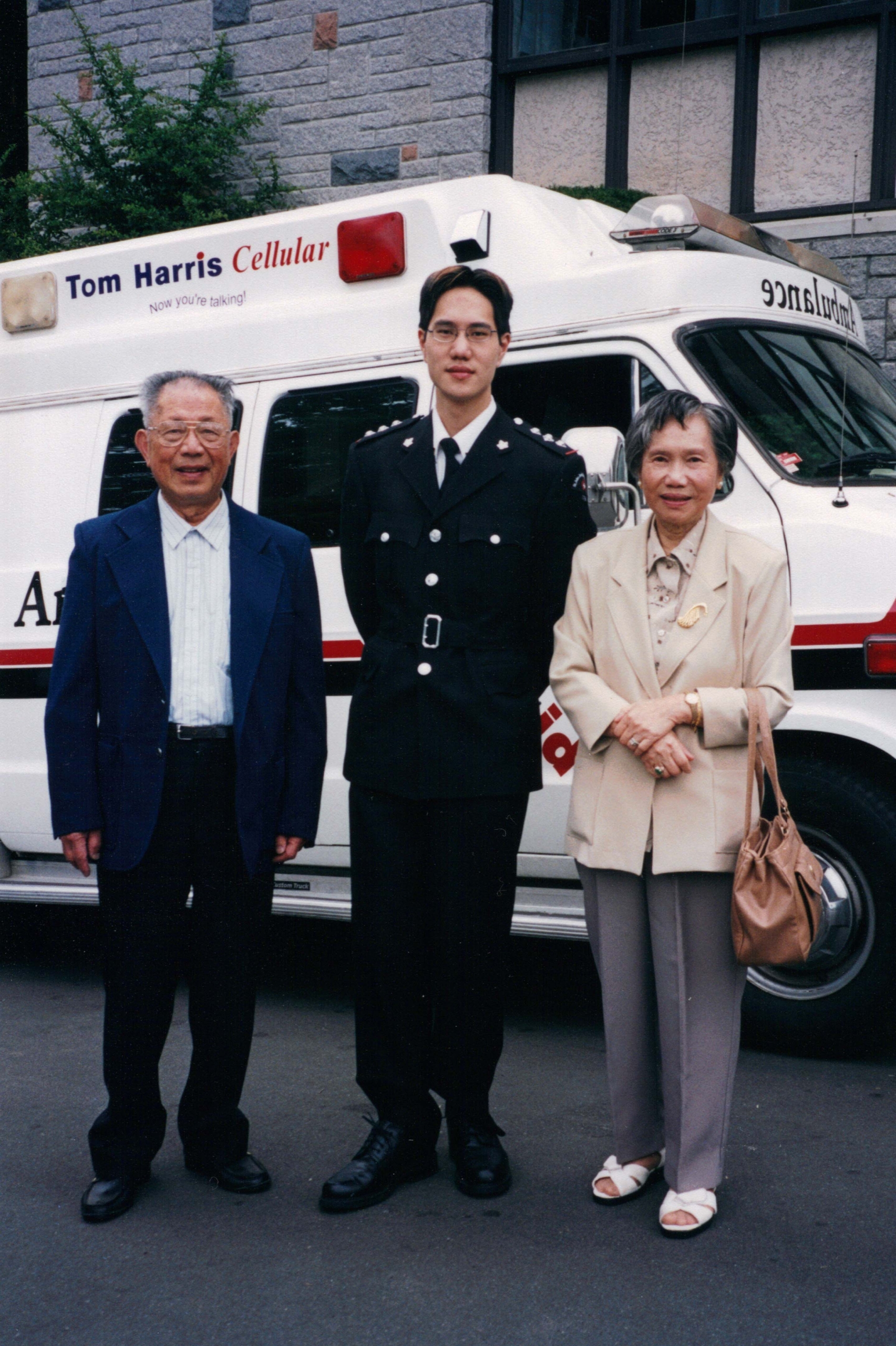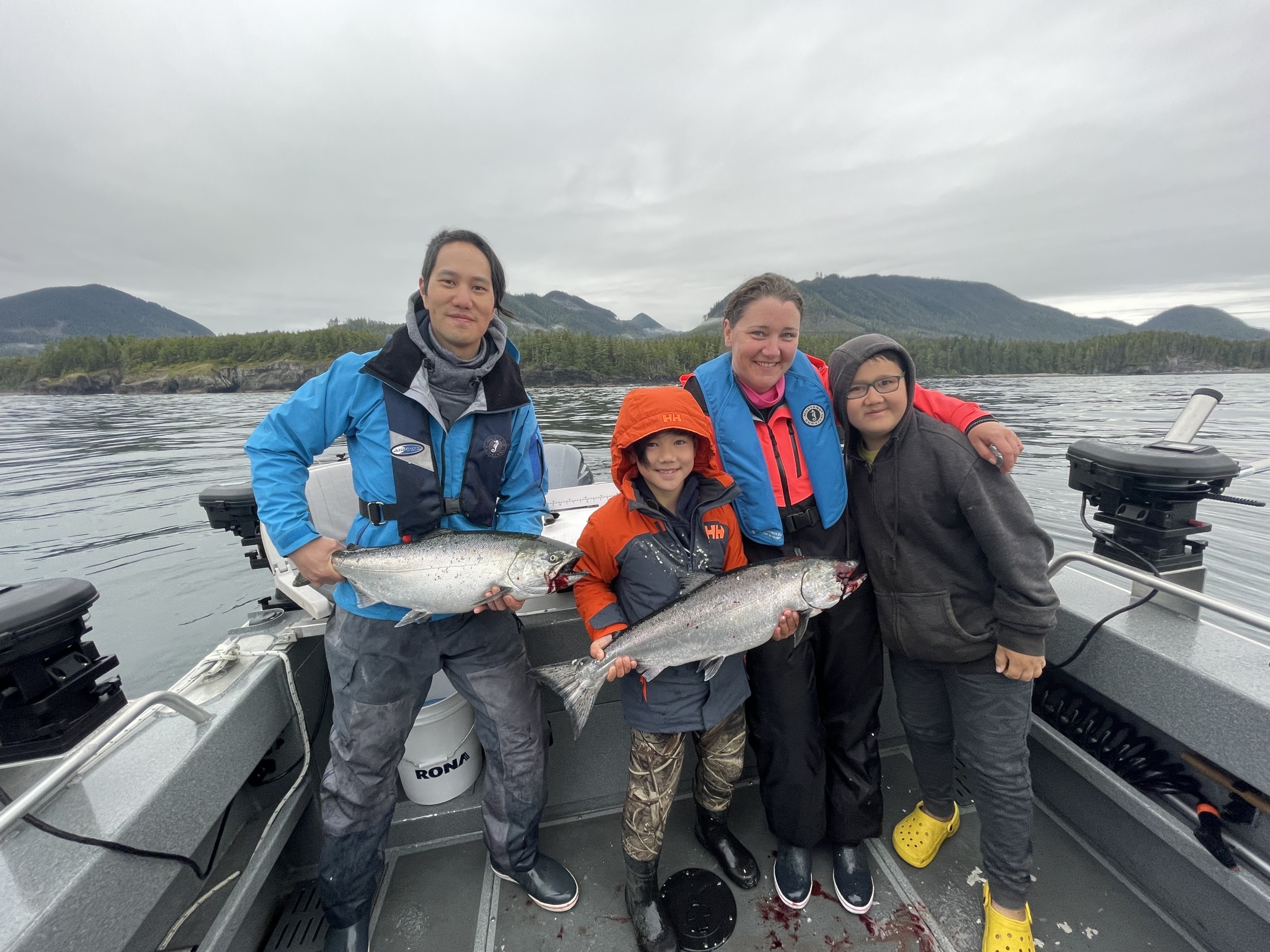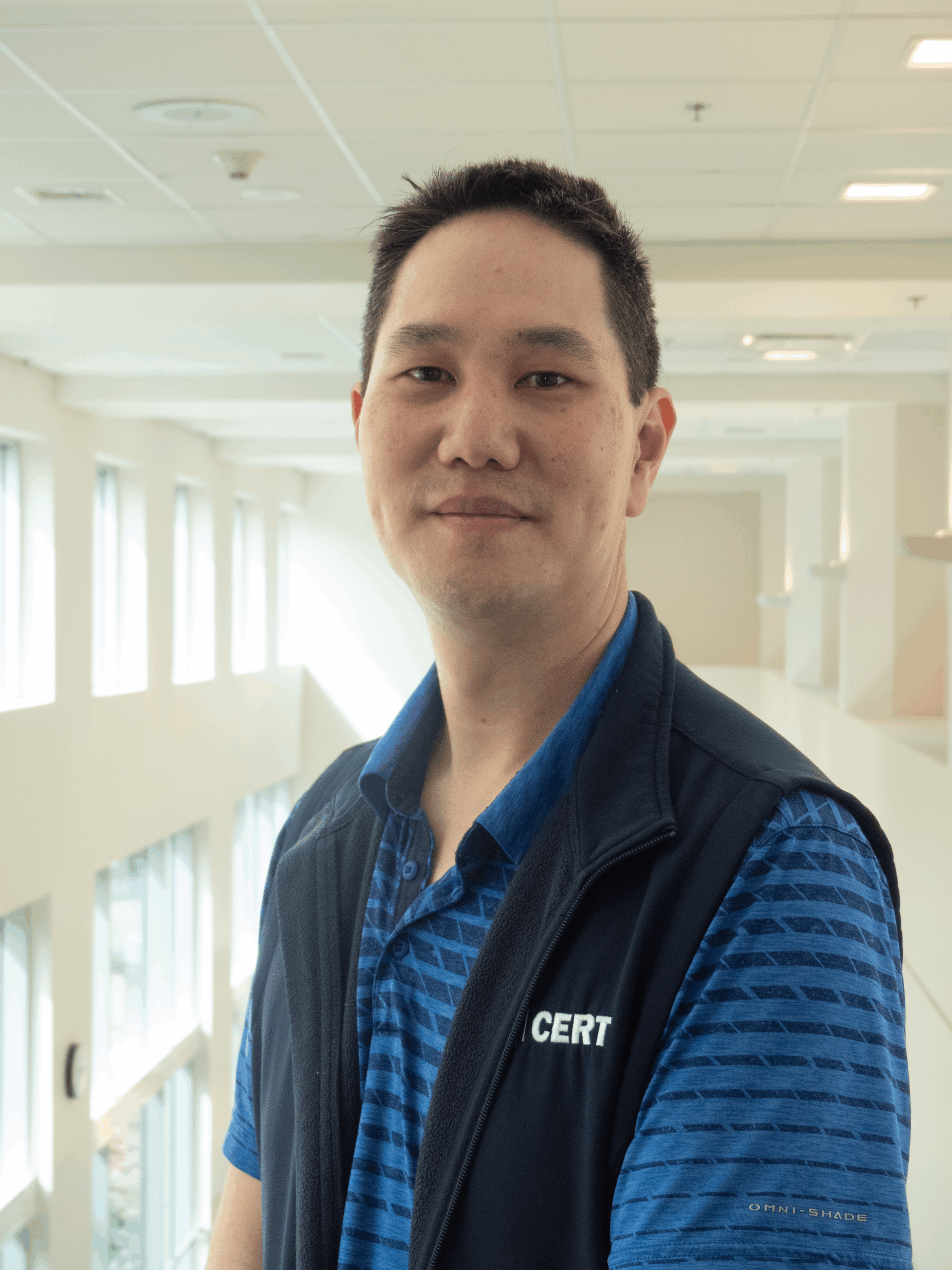
Brian Lee
Clinical Nurse Educator, Community Member, Fisherman, Husband, Father, Human
I’m a Victoria unicorn—born and raised locally, right in Cadboro Bay. This is my community. I am privileged to understand it well and to be able to give back to it. There is a homeyness in staying where I’ve grown up, passing by my old schools: Frank Hobbs, Cedar Hill, Mount Douglas.
It was during my time at Mount Douglas that my journey into healthcare first began. While sitting in my Biology 11 class, a friend told me about St. John Ambulance. I had already been volunteering at the Royal Jubilee Emergency Department and the opportunity really excited me, so I decided to upgrade my first aid certification and apply for the St. John Brigade.
As an event first aid attendant with St. John Ambulance, I got to work and bond with many really good people. We learned a lot from each other, as we were a diverse group: younger people, older people, established medical professionals, even my now wife, Trudi.
At that time, Trudi and I were both nursing students. We supported each other through our education, as we still get to do now. She works as a charge nurse in Labour & Delivery at Victoria General Hospital, and even though our practice areas are very different, having the commonality of healthcare work allows us to understand and support each other all the better.
“This is my community. I am privileged to understand it well and to be able to give back to it.”
“Caring for these people is why I do what I do”
Soon into my career, I ended up working back at the Royal Jubilee Emergency Department where I had volunteered as a teenager. I’ve since had the privilege of working in all of the emergency departments in Victoria, and really enjoy the field. It draws so many of the first aid aspects that I loved about St. John Ambulance into the hospital environment. Throughout the years I’ve continued to challenge myself, upgrading my education and eventually becoming a clinical nurse educator—now teaching many of the courses that I benefitted from as a student.
I say I have the perfect job. I get to spend half my time as an educator, supporting the Collaborative Emergency Response Team (CERT) as we connect critically ill patients from around the Island with the care centres best suited to their needs. Then the other half of my time is spent hands-on with patients. I am able to keep up my skills, and my “street cred”, because I am actively doing the work I am teaching. I really appreciate that I still get to have time and space with patients. After all, caring for these people is why I do what I do.
Outside of work, Trudi and I love to get outdoors. Before kids we would go motorcycling or scuba diving. These days, we’ll often go out boating with our two boys, Ethan and Nicolas, and bounce around the Gulf Islands. My family is a bit funny because we all love to fish—big fish, small fish, shellfish, it doesn’t matter—but no one except for me will eat seafood, so I get to enjoy the benefits all myself. We also regularly head to Gordon Bay with our trailer to meet up with many families including another former St. John volunteer. She works in emergency medicine now too, and has grown a family of her own. It’s good to be able to reconnect with them often.
To me, as human beings, I think it’s important to remember that we belong to society with other human beings. Family members, long-time friends, co-workers, patients, people we’ve never met—everyone has their own story. It can be easy to get caught up in our own narratives and lose sight of that, allowing our known truth which could contain biases and misconceptions to guide us. When I am caring for a patient in emergency, there are so many assumptions I can make if I don’t take the time to listen and understand their situation. Even in my own experience as a male nurse, people often have assumptions and misunderstandings about me too. But humanity is at its best when we make the effort to engage with each other in empathy.
As an educator, I’ve learned that one of the most important factors for growth is relationship. People learn best when they are surrounded by a network of others who humbly listen to their story, however different it might be; who build them up but also give them permission to fail; who create a safe space to learn and grow, working collaboratively towards better outcomes. We all have room to grow in our empathy, understanding, and humanity, and we all have a part to play in the growth of those around us as well. So let’s take the time and make the effort, because we are all humans first.
“We all have room to grow in our empathy, understanding, and humanity”
They are humans first, who put other humans first.
More than 8,900 caregivers and staff work around the clock in our Victoria Hospitals
#HumansFirst is dedicated to sharing the stories from behind our hospitals’ frontlines. These stories remind us that those who provide care and keep the lights on in our hospitals also have lives outside of them. They have family and friends, they enjoy hobbies and interests, and they have all lived through their own personal triumphs and heartbreaks. Like all of us, they are human, and they have a story to tell.







